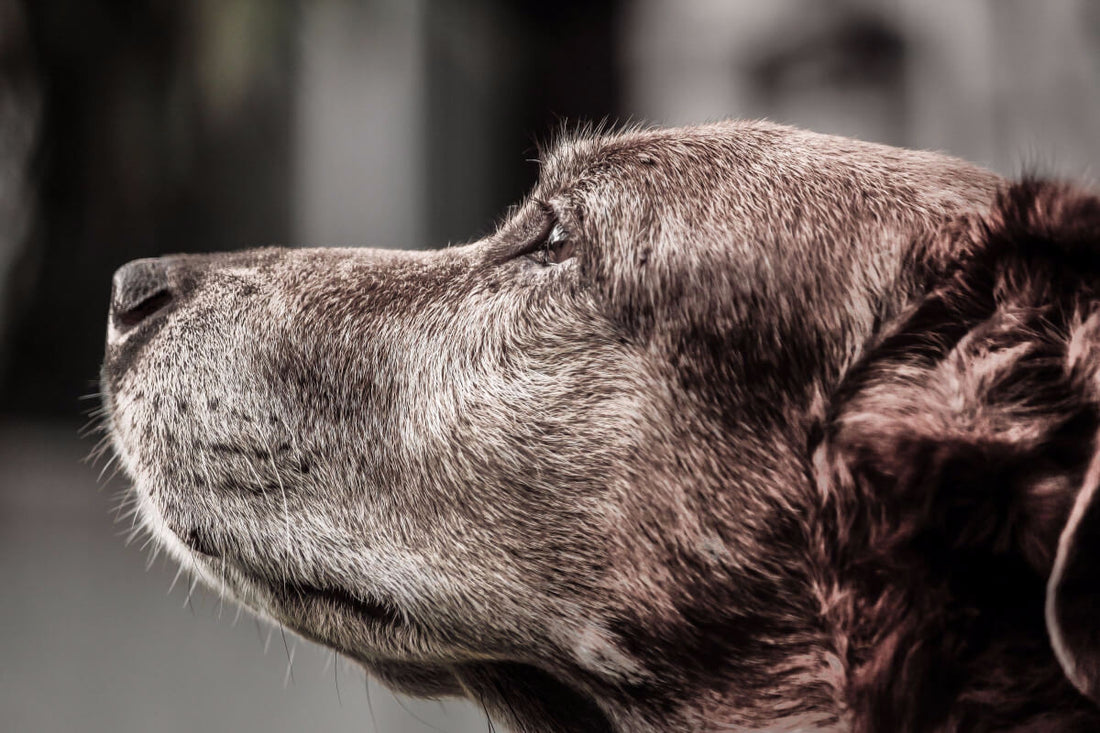
A Look At Different Options For Treatment of Canine Cancer
Share
Treatments for Canine Cancer
According to The Veterinary Cancer Society, cancer is the leading cause of death in 47% of dogs, and is more common dogs above age ten. Like cancer in humans, cancer in pets can be found in the bones, skin, head, breast, neck, testicles, abdomen and lymph system, and will likely spread throughout the body’s organs in a similar manner to human cancer. Among dogs, lymphoma and mammary gland cancer are most common, and an estimated 6 million dogs will be diagnosed with cancer each year. However, there are many treatment options that pet owners can take in response to a cancer diagnosis in their dogs, and more than 60% of canine cancer cases will likely be cured.
Surgery
Surgery is a common option for cancers found in early stages. The majority of the cancers in dogs can be surgically removed, including many types of breast cancer, mast cell tumors, soft tissue sarcomas, and skin tumors. However, if the cancer has advanced to spread to a lymph node, surgery will not be able to eliminate all cancerous areas.

Radiation Therapy
Radiation therapy is a localized process often used for tumors that are not surgically removable, most likely due to a close proximity to vital organs such as the heart or brain. Radiation therapy is typically administered once a day, 16 to 20 times. There is no direct pain from the treatment, though a dog receiving the treatment may become lethargic due to repeated use of anesthesia.
Chemotherapy
Chemotherapy for dogs comes in many forms of implementation: oral, intravenous, topical, subcutaneous, intramuscular, intratumoral, and intracavitary. In any of these forms, drugs are administered to kill remaining cancer cells after removing a tumor in surgery (adjuvant), shrink an existing tumor prior to surgery(neoadjuvant), or quicken remission for specific blood-borne cancers (induction). The majority of canines who have received chemotherapy do not experience serious side effects. However, temporary diarrhea, vomiting, and loss of appetite may occur. Unlike humans, dogs will not lose their fur, though some may experience thinning hair. There is a less than 5% chance that there will be a serious side effect requiring hospitalization or a trip to the veterinarian. Chemotherapy may result in a lowering of red and white blood cell counts and immunocompromisation.

Natural Remedies
While natural remedies may not eliminate cancer completely, they may reduce risk of cancer, improve the condition of a dog with cancer, or help another be more effective. Homeopathy coupled with nutrition may be effective for certain dogs. Homeopathy does not fight against cancer, but rather works with natural healing mechanisms, such as Neoplasene, created from bloodroot extract, and Essiac, an herbal formula, to “rebalance the life energy so the tumor is no longer needed or supported.” Immune support remedies such as essential oils, Chinese herbals, herbal constituents, cancer-fighting mushrooms, and caustic herbal products may also be used. In Dr. Arthur Grimmer’s studies, over a four year period, 175 of 225 canines with cancer survived, treated only with homeopathy and nutrition. Nutrition is especially important to whole-body health; processed kibble can be damaging, whereas whole and human grade foods with fresh meat and vegetables have less mycotoxins that are carcinogenic.
Many treatments are carried out together to help eliminate any traces of cancer. In any case, choose a treatment that considers your veterinarian’s medical advice as well as your dog’s type of cancer.
Works Consulted
Eckstein, Sandy. "Dog Cancer Types, Symptoms, Treatments, and More." WebMD. WebMD,
n.d. Web. 07 Jan. 2017.
Henriques, Julia. "6 Holistic Vets Explain: Natural Treatment Of Cancer In Dogs."Dogs Naturally
Magazine. Dogs Naturally, 29 Apr. 2016. Web. 07 Jan. 2017.
Kramer, David F. "PetMD." What to Do When Your Dog Has Cancer | PetMD. PetMD, n.d. Web.
07 Jan. 2017
N/a. "Quick Facts About Pet Cancer." Fetch a Cure. Fetch a Cure, n.d. Web. 07 Jan. 2017.
Written By: Victor Lam
